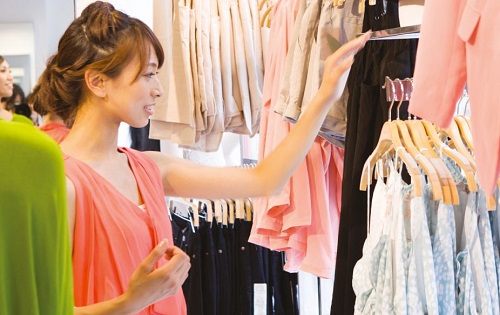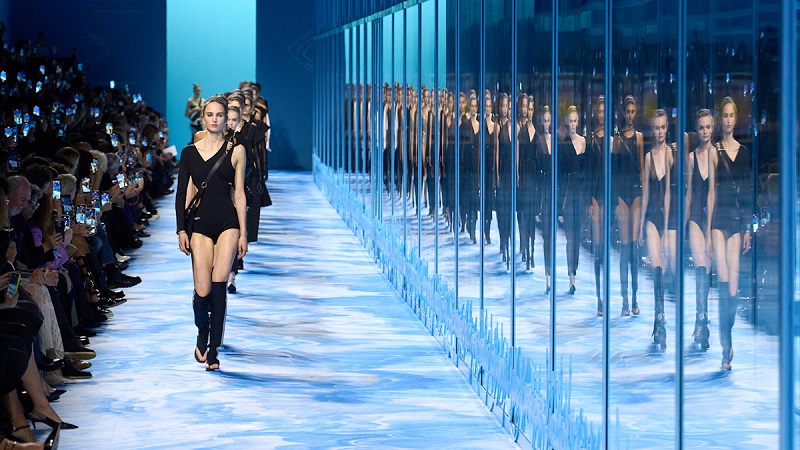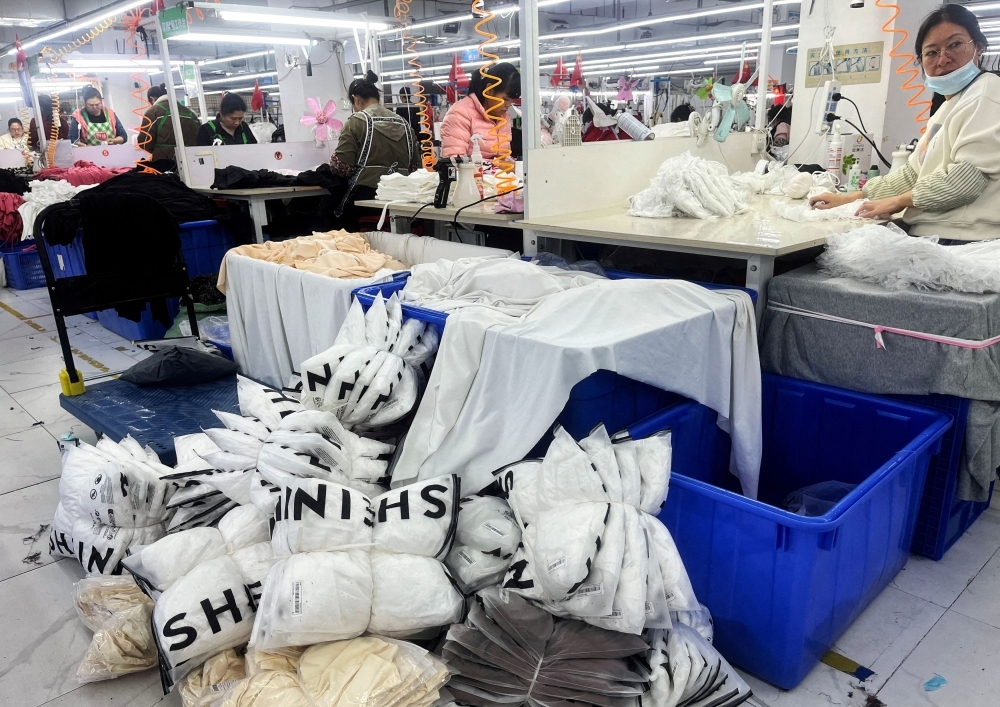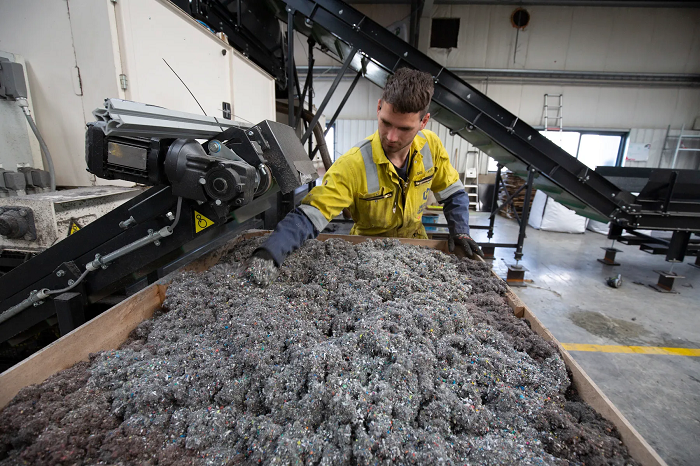FW
 With the current Coronavirus pandemic, Italy has locked down all nonessential manufacturing businesses. And as per Confindustria Moda, this will have a tremendous impact on the country’s fashion supply chain as it will drag down companies that supply to many local and international brands.
With the current Coronavirus pandemic, Italy has locked down all nonessential manufacturing businesses. And as per Confindustria Moda, this will have a tremendous impact on the country’s fashion supply chain as it will drag down companies that supply to many local and international brands.
Initiatives to continue supplies
To minimise looses, textile firms in the country are planning to relocate manufacturing closer to their clients. They are developing new products; and most of the entrepreneurs, including Stefano Albini, President, Albini Group, shipped goods ahead of the lockdown in order to pave way for what is hoped to be a brisk return to business.
Another textile company, Vitale Barberis Canonico, is leveraging its stock service to provide three-day delivery of goods to those companies that manufacture in countries that are not under lockdown. It is trying to build a structure that will enable it to provide quick solutions to its customers. Despite these initiatives, these companies face several concerns, including the survival of smaller, often family-run third-party suppliers have little to no access to credit and liquidity.
manufacture in countries that are not under lockdown. It is trying to build a structure that will enable it to provide quick solutions to its customers. Despite these initiatives, these companies face several concerns, including the survival of smaller, often family-run third-party suppliers have little to no access to credit and liquidity.
The Italian government’s measures issued with the March decree are not enough to support those businesses. Therefore, Andrea Crespi, Managing Director of Italian high-performance fabrics company Eurojersey has called for European intervention to directly inject cash flow and offset the costs during this two- to three-month shutdown period.
Barberis Canonico is allowing its clients to postpone payments given its solid financial situation. The company forecasts orders to decrease roughly by 20 per cent and sales to drop from March also because the lockdown in the rest of Europe might stretch beyond April 6.
Barberis Canonico also forecasts merchandise for spring 2021 to be reduced as the warehouses of the firm’s apparel clients are now packed with potentially unsold spring 2020 fashion items,
Botto Paola, however makes optimistic projections for fall 2021 season. The company expects high-performance man-made fabrics to benefit from the new scenario he forecast. According to the company a revenge spending attitude will boost the sector’s performance when health concerns are over. The company predicts a return to tailoring as a reaction to the long period of quarantine. Barberis Canonico adopts a more cautious approach as she is skeptical if customers will need formalwear that is primarily linked to social occasions, including work, travel and ceremonies. According to the company, the current scenario calls for even more innovations.
On, the other hand, Crespi views companies that have genuinely implemented eco-friendly initiatives will continue to do so. Eurojersey will continue to focus on the industry’s environmental costs. The company hopes China’s recovery will help offset losses in the first two months of the year which amounted to at least 50 percent for luxury brands.
Mohammad Ali Khokon, President of Bangladesh Textile Mills Association (BTMA) has demanded withdrawal of VAT on all kinds of yarns and fabrics sold between March 20 and June 30 this year. He also sought exemption of interest on term loans for six months and extension of term loan repayment period by two years for the affected millers.
He demanded enabling payment of utility bills like gas and electricity for the next six months starting from March in 12 monthly installments while withdrawing associated VAT, interest and surcharge. He demanded the government facilitate duty free import of textile dyes and chemicals until June 30 this year.
The BTMA chief also urged the government for withdrawing all demurrage fees for imports at the Chattogram port between March 20 and June 30 this year. Khokon revealed that yarn and fabrics worth Tk 3,500 crore have piled up in around 250 spinning and weaving mills in Bangladesh because of the ongoing movement restriction to curb the spread of coronavirus.
These millers had manufactured targeting two upcoming festivals Pahela Baishakh and Eid-ul Fitr. The affected millers mainly produce yarn and fabrics for the local market, Khokon said in the letter, which he prepared to submit to the finance ministry and other government offices next week.
This year, the government imposed a ban on large gatherings to celebrate the first day of the Bangla calendar, when clothing items worth around Tk 1,500 crore.
Italian luxury fashion suppliers are plunged into uncertainty as the Italian government imposed a lockdown on the national territory until at least April 3. The lockdown previously only included key manufacturing provinces in the North, representing as much as 60 per cent of Italy’s textile and clothing manufacturing, and had already sounded alarm bell for the country’s economy, which will now be further affected.
Italian luxury brands are directly supporting the fight against the virus. Giorgio Armani has donated €1.25 million to hospitals in Milan and Rome and the Civil Protection Institute, while Bulgari has delivered a new-generation microscope to the Lazzaro Spallanzani hospital in Rome.
Giorgio Armani’s cruise show, scheduled for April 19-20, 2020 in Dubai, has been shifted to October. Versace and Gucci both cancelled their shows in the US, originally planned to take place in May. Prada scrapped its May resort show in Tokyo.
The list of trade shows affected by Covid-19 includes Luxe Pack Shanghai, an important packaging show, and Esxence, an art perfumery show in Milan, shifted their dates from April to July and late May respectively. SXSW, the tech, film and music conference and festival in Austin, Texas, planned for 13-22 March, was cancelled one week before it was due to open, representing a significant blow to the city’s economy.
Over million workers in Bangladesh’s garment industry have either been fired or furloughed as global fashion companies have canceled or suspended orders in Bangladesh due to COVID-19 crisis, reports Penn State University’s Center for Global Workers’ Rights and the Worker Rights Consortium (WRC), an independent labor-rights monitor.
A number of suppliers in Bangladesh have abandoned these workers and refuse to even cover the costs of work already done. Many factories expect to close unless something changes. The dire situation has come about as Covid-19 has forced companies to shutter stores as part of social-distancing measures while demand for new clothes has simultaneously plunged as shoppers stay home and stop buying anything that isn’t essential. Retailers are doing all they can to avoid adding to their mountain of unsold inventory.
Fashion companies have already canceled or put on hold at least $3 billion in orders from Bangladesh’s garment factories, according to the Bangladesh Garment Manufacturers and Exporters Association (BGMEA). That’s roughly equivalent to a full month of exports, based on previous BGMEA data. Without the orders, many factories are unable to pay workers
A national team of six Taiwanese textile manufacturers are modifying their production lines and ramping up output to help meet the rising demand for surgical masks and other personal protective equipment (PPE) amid the COVID-19 outbreak. The team is being led by Makalot Industrial, who had the advantage of research and development conducted 17 years ago when the severe acute respiratory syndrome (SARS) epidemic hit Taiwan.
Taiwan mostly imported protective hospital gowns then and the government began encouraging domestic manufacture to start making PPE. So the company filed an application in 2003 for a license to manufacture protective gowns. The company's research team came up with a design, which it patented three months later.
The company is now on its way to produce 100,000 protective gowns by late April and is aiming to manufacture another 220,000 at its factory in Vietnam. It also plans to set up a production line in Chiayi in southern Taiwan, which will manufacture 10,000 gowns per month initially and gradually raise its monthly output to 50,000, he said.
The team of five manufacturers has been contracted by the government to deliver 1.1 million isolation and protective hospital gowns by April. Meanwhile, Kang Na Hsiung Enterprise, a manufacturer of hygiene products and synthetic textiles, has revived its production lines for melt-blown non-wovens—the main raw material used to make surgical masks—which had been mothballed for at least five years. The company has ramped up its daily production of melt-blown non-wovens to 2.4 tonne, which can make more than 3 million face masks.
Milan Women’s Fashion Week, which is scheduled to be held in September, will become the first season to combine men and women’s collections! Fashion freaks can definitely feel ‘fruit of patience is really sweet!’
Earlier, Milan Men’s Fashion Week was scheduled for June this year. The announcement was confirmed by Camera Nazionale della Moda (The National Chamber of Italian Fashion). Men’s shows due to run from June 19 to 23, will now run alongside Milan Women’s Fashion Week, planned from September 22 to 28 this year.
Spanish fashion brand Mango opened a new new logistics centre in Llicà d’Amunt, a picturesque town outside Barcelona. Approximately 600 people work six days a week at this highly automated facility, where around 400 operations are machine-driven, to process items for store deliveries.
The company has so far invested €232 million in the 186,000-sq. mt. facility, which can stock up to 7 million hung garments and 20 million folded garments and accessories at the same time. It was completed in 2016 but became fully operational last summer. By incorporating the latest automation technologies, the centre is able to process 75,000 garments an hour, tripling the retailer’s former capacity.
As soon as hung garments arrive at Llicà d’Amunt, they are unloaded onto one of nine automatic loading bays, which can process 27,000 garments an hour. Each bay is equipped with a classifier that separates the garments by size and style. They then travel along a 24-kilometre rail to be shipped out to stores or held in the warehouse. According to Mango, its hanging garment installation is one of the most automated in Europe.
On the opposite side of the logistics centre are automatic loading docks that can process 1,000 boxes of folded garments and accessories per hour. The boxes are passed through a weighing and labelling area and identified with a tracking ID so they can be located at any time. Like the hung garment area, the folded garment warehouse prepares boxes to be either shipped or stored based on in-store sales information.
German sportswear maker Adidas has apologized to landowners for not paying rent for stores around the world forced to close by COVID-19 lockdowns. The brand needs credit even after staff cut their working hours, executives waived part of their pay and the company stopped share buybacks.
Many retailers around the world have been seeking to defer rent payments as they look to ride out the coronavirus shutdown, passing on the financial pressure to their landlords.
The brands plans to suspend a €1 billion ($1.09 billion) share buyback it had planned for this year as a way to conserve cash after closing its retail outlets in Europe and North America.
Adidas AG is a multinational corporation, founded and headquartered in Herzogenaurach, Germany, that designs and manufactures shoes, clothing and accessories. It is the largest sportswear manufacturer in Europe, and the second largest in the world, after Nike. It is the holding company for the Adidas Group which consists of the Reebok sportswear company, 8.33% of the German football club Bayern Munich, and Runtastic, an Austrian fitness technology company. Adidas' revenue for 2018 was listed at €21.915 billion.
Pakistan textile industries have demanded emergency measures from the government as foreign buyers have canceled or suspended $1.3 billion worth of textile products due to Convid 19. According to Pakistan Chemicals and Disease Association, the supply chain in the country is also likely to be affected due to lockdown in the production of textile, pharmaceutical and other industrial sectors. Pakistan exports $25 billion annually, but the outflow is stopped due to lockdown.
Ijaz Khokhar, Chief Coordinator of the Pakistan Readymade Garments Manufacturers and Exporters Association, says canceling orders from global buyers or delay will affect labor and more people will go below the poverty level. The airlines and the hotel industry, on the other hand, have been the most affected by the outbreak of Coronavirus all over the world and buyers of hotel businesses abroad have also delayed their imports from Pakistan
In order to adapt and respond to labor challenges in cotton farming, such as those posed in Western China, the Better Cotton Initiative (BCI) has set up an expert Task Force on Forced Labor and Decent Work to review selected elements of the Better Cotton Standard System.
The task force will produce recommendations to improve the effectiveness of the system in identifying, preventing, mitigating and remediating forced-labor risks. The Better Cotton Standard System is a holistic approach to sustainable cotton production that covers all three pillars of sustainability–social, environmental and economic, and addresses the many challenges of cotton production.
The Task Force on Forced Labor and Decent Work brings together representatives from the civil society, retailers, brands and consultancies with a strong expertise in human rights and forced labor issues in supply chains, particularly in the textile sector. The Task Force also draws on the expertise of a project adviser with a background tackling the risks of child and forced labor in cotton harvesting at the International Labor Organisation.











